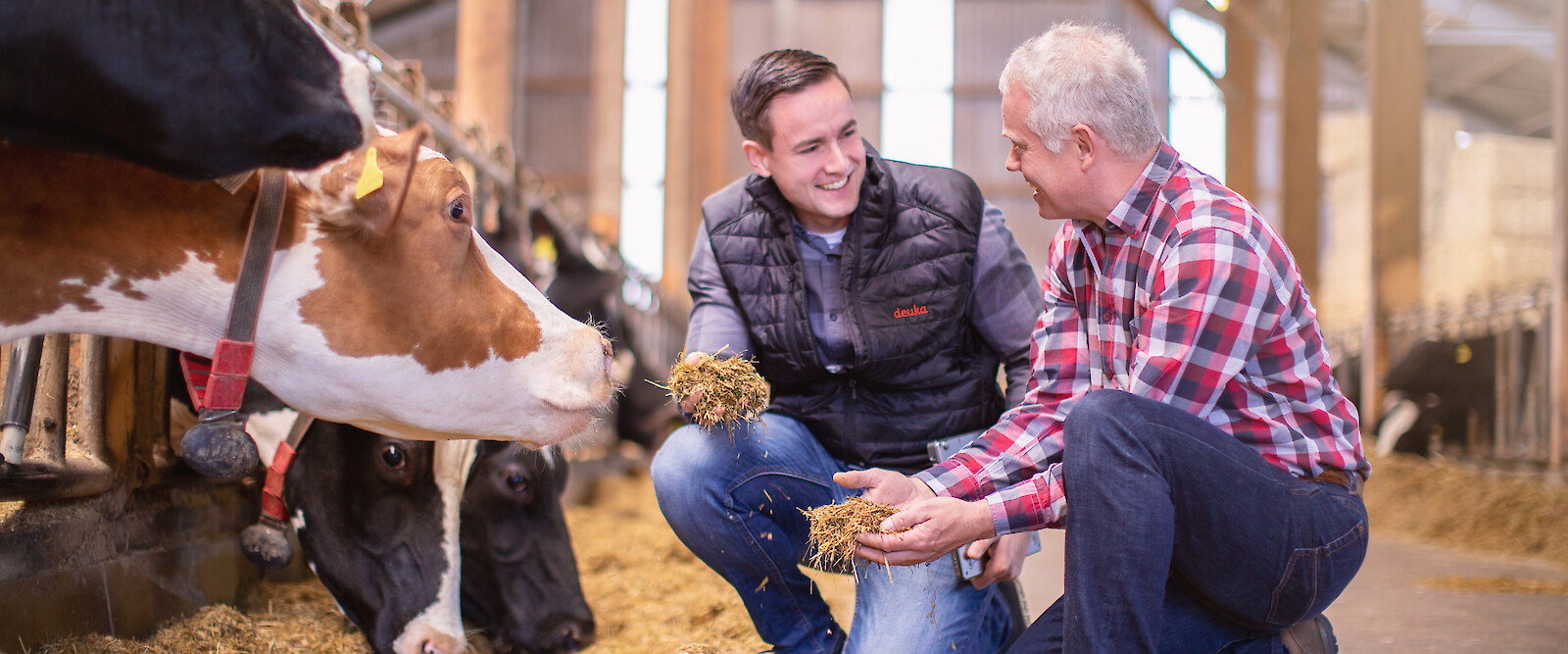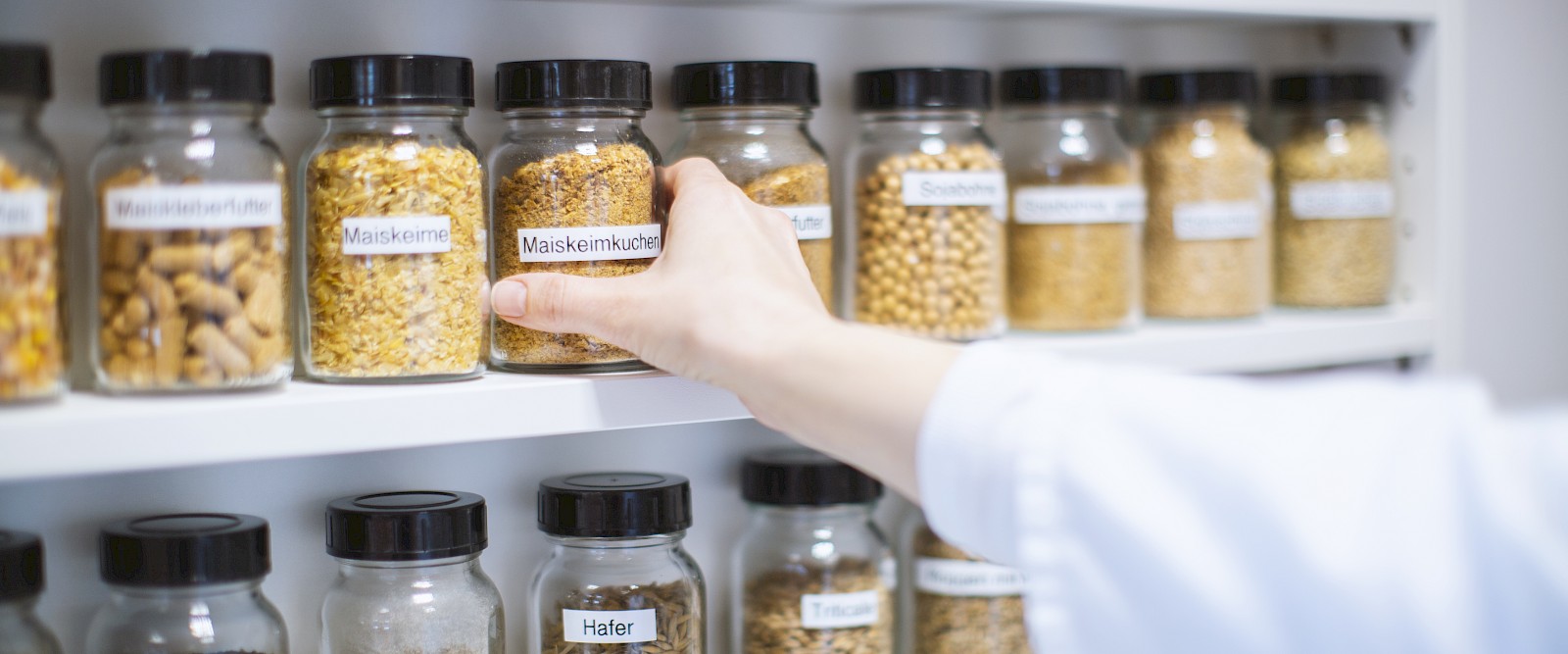Raw material and nutrient lexicon
Molybdenum
Molybdenum is a component of enzymes that are important for the build-up of uric acid and for the breakdown of nitrates. Molybdenum is in an opposing relationship to copper and sulphur. High levels of molybdenum increase phosphorus excretion. Copper deficiency in ruminants is promoted by high molybdenum contents in the feed (e.g. on peat soils). Copper inhibits, molybdenum increases bacterial activity in the bovine intestine. This can often lead to prolonged diarrhoea symptoms when grazing or feeding green fodder on boggy soils. Molybdenum deficiency leads to anaemia, diarrhoea and paralysis (comparable to the symptoms of copper deficiency). The molybdenum content of plants is strongly dependent on the growing location and the soil reaction prevailing there. Plants reach the highest molybdenum content in alkaline soils. Cereals and oil meals (e.g. soybean meal, sunflower meal, rapeseed meal) can also be classified as rich in molybdenum. The supply of molybdenum to the animals is ensured by supplementing the feed with sodium ammonium molybdate, calcium molybdate or molybdenum oxide as required.






